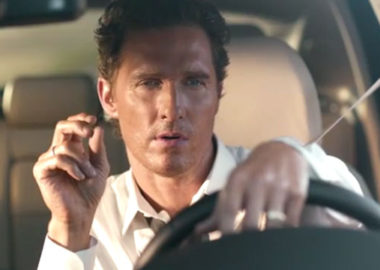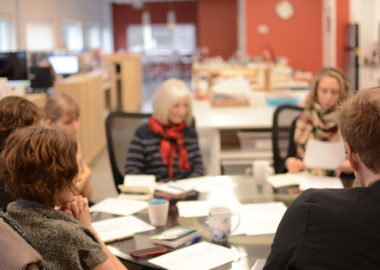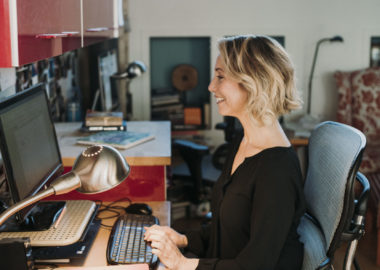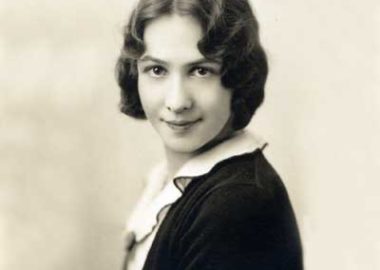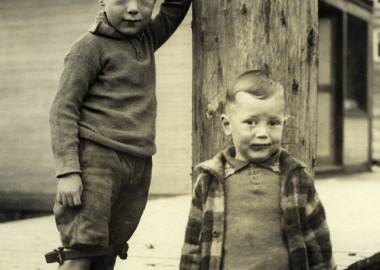
At ECHO, storytelling is at the core of everything we do. And we’re always curious how other people use it their own lives and businesses. In the interest of collaboration, research and keeping up with the latest trends in storytelling and content marketing, we love talking with friends and peers at other agencies.
Here, meet Wildfire Experiential and Events co-founder Bianca Knop. Her agency specializes in experiential marketing, a form of interactive marketing that actively opens dialogue with customers through an in-person experience between a brand and their consumers, the most effective of which, we’d argue, have storytelling at their centre.
For the uninitiated, what is experiential marketing and how is it different from traditional forms?
Experiential marketing is a form of advertising that focuses primarily on helping consumers experience a brand. While traditional advertising (radio, print, television) verbally and visually communicates the brand and product benefits, experiential marketing tries to immerse the consumers within the product by engaging all five senses.
In the end, the goal of experiential marketing is to form a memorable and emotional connection between the consumer and the brand so that it may generate customer loyalty and influence purchase decision.
Have you noticed experiential marketing taking off in the past year? If yes, why do you think that is?
I’d say that experiential marketing has been gaining momentum over the past couple of years. Definitely in the last six months to a year it’s been getting a lot more media attention and coverage. I think this is the case because it’s working and consumers are looking for more meaningful and authentic interactions with brands. Experiential done right creates great word of mouth, excellent and captivating content and now, with better measurement tools, can be proven to increase brand awareness and sales for companies.
What role does a good brand story play in conceiving of a strong experience for a given company’s audience?
If you have a good brand story to tell you will have better success of conceiving a strong experience. I think it’s always important to remember your audience when creating experiential ideas. Often clients can get caught up in the details of the product or service they are trying to promote and forget that they shouldn’t be trying to push information through experience. The best experiential activations convey a message and information – a story – without the consumer being hit over the head with it.
How does experiential marketing help a client tell their brand story?
It provides a fun, entertaining and engaging platform to tell the story.
What can a client get out experiential marketing that they wouldn’t get from more traditional forms?
I think one of the biggest things a client can get out of experiential is relationship building with a consumer. Print and online advertisements are often one-way streets where the consumer is forced to listen to the message. Experiential opens the door to a two-way conversation and allows for a relationship to develop. I always use the example of being at a cocktail party. We’ve all been stuck talking to the loud person that only speaks of themselves and rarely gives a pause to learn about you. Tiring is the nicest way I can describe that interaction. What we often remember in a more positive light is an engagement that is more interactive, where you are asked questions, entertained and overall just seems more natural than forced.
Do you support your efforts with social and other forms of marketing?
Yes, when possible. We see huge benefits when our programs and activations are supported with social and traditional forms of marketing. It helps pre-promote and get the word out to drive traffic to what we are doing. Word of mouth is great but doesn’t always have the quickest uptake or furthest reach. Amplifying our message with social and traditional forms of marketing is very beneficial.
Many of these events are quite spectacular – do you need a big budget to pull off a successful campaign?
Big budgets clearly help but aren’t always necessary. I feel that a smart, unique and clever idea will always win over a more generic and predictable one with a huge budget behind it. That being said promotional dollars can go very far to get awareness of an experiential campaign up but again if the experience itself is flat then it can all fall apart. Remember the end user is the consumer and these days they aren’t shy to share how they really feel about a brand’s experiential efforts/executions.
Are there common misconceptions you see about this kind of work?
I would definitely say there are some misconceptions. The biggest one is that clients often see experiential as an add-on, something that is layered on as an extension of a larger campaign. Recently the shift has been towards brands accepting experiential marketing as the campaign idea and the focus.
How do you convince your clients to do something out-of-the-box like an activation? How do you guarantee ROI on experiential?
It all starts with the right fit. If we are working with a client that has objectives that can be met with an experiential campaign that’s our starting point. It can definitely be an uphill battle convincing clients, as experiential is still seen as somewhat new or risky. If there is a strategic foundation to why they should be doing this it’s a lot easier to have the conversation. We also always tie each experiential idea into metrics. There is no point in doing an experiential campaign if you aren’t going to see ROI and results. There are more ways to measure success these days and every good campaign should have these baked into the overall strategy and execution.
That being said you can’t guarantee ROI. I feel success really ties back into the overarching experiential idea. If you have a strong story to tell, if you understand your target audience, and then create a memorable and head-turning experience, you will have people stop to pay attention and engage. If you don’t put the care into the front-end strategy/work you will fall flat on the back-end and your ROI will suffer.
I particularly loved the UNIQLO Flannel Shirt/Welcome Store campaign this year. Can you tell me about a favourite campaign you’ve been a part of? What made it special?
Here are the case studies for two of my favourite campaigns.
What made both so special was seeing the reaction of the consumers. It’s a feel-good moment when you can take a consumer by surprise and treat them to something that isn’t sales focussed and that truly provides them with something of value and heightens their day or experience.
How did you get into this career? What’s your background?
I was a UBC graduate with a Bachelors of Human Kinetics. Within my faculty I focused on the Sport and Leisure Management stream. I can’t say when taking my degree I imagined I’d be working in the world of experiential but I do remember a couple of courses that I took which focussed on events and psychology that definitely grabbed my attention. After graduation I took on some event management work at various employers and landed a seasonal job as an adventure tour guide. Looking back on things the tour guiding job was likely one of my most important steps towards experiential as my whole responsibility was driving around 20 backpackers looking to have the most memorable, impactful and fun trip around Western Canada. Through this job I think I really started to understand how people react to great experiences and how to craft and create something truly memorable.
Pairing that experience with my Undergraduate studies I was more than happy when Vancouver was awarded the 2010 Olympics and knew I needed to be involved. I accepted a job working in sponsorship and activation at Altius Sport Marketing – a division of Cossette Communications and learnt how to use that passion for creating great experiences when working with world-class brands on their consumer facing/experiential strategies. From there I stayed in the agency world and moved on to McLaren McCann Momentum to head up their experiential department until I couldn’t ignore the itch to go off on my own and start something new. So in February 2015 along with my long-time friend and colleague we launched Wildfire Experiential and Events.
Thanks Bianca! Want to tell us about your work in storytelling? Drop us a line or leave us a comment on Facebook.

